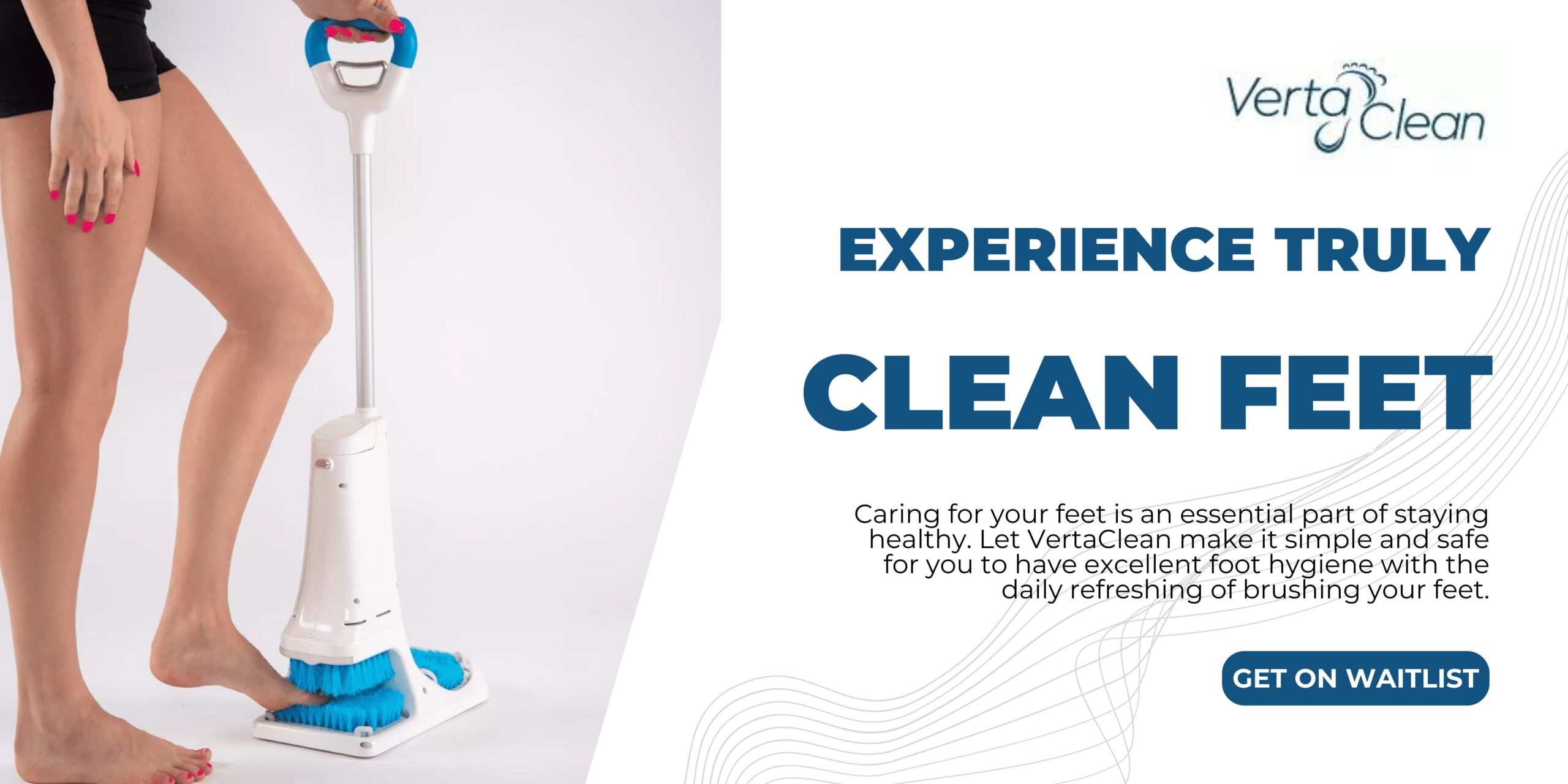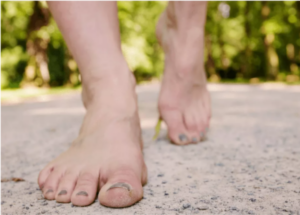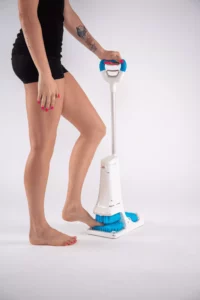Maintaining proper foot hygiene is essential for our overall health and wellbeing. Amidst a myriad of foot care tools available in the market, standing shower foot scrubbers have gained popularity for their convenience and effectiveness. However, for individuals with sensitive skin, the question arises: are these foot scrubbers gentle enough? In this article, we delve into the intricacies of standing shower foot scrubbers, examining their material composition, bristle types, potential skin sensitivity and irritation factors, design ergonomics, and recommendations for those with sensitive skin.
Firstly, understanding the material composition of foot scrubbers is crucial. The materials used can significantly impact their gentleness and efficacy. By exploring the various substances used in the manufacture of these scrubbers, we can determine which are most suitable for sensitive skin.
Next, the types of bristles employed in foot scrubbers play a pivotal role in their performance and comfort. From soft silicone bristles to firmer nylon ones, each type has distinct characteristics that can affect skin sensitivity. This section will compare and contrast these bristle types to provide a clearer understanding of their implications.
Skin sensitivity and irritation factors are also paramount in this discussion. Individuals with sensitive skin need to be particularly cautious about the products they use, as certain elements
Material Composition of Foot Scrubbers
The material composition of foot scrubbers plays a crucial role in determining their gentleness on sensitive skin. Foot scrubbers can be made from a variety of materials, including natural products like pumice stone and loofah, or synthetic materials such as silicone and plastic. Each material has its unique properties that affect its abrasiveness, durability, and overall effectiveness. For individuals with sensitive skin, the choice of material is particularly important, as harsher materials can exacerbate skin irritation and lead to discomfort.
Natural materials like pumice stone are known for their effective exfoliating properties, but they can sometimes be too harsh for delicate skin. Loofahs offer a more gentle scrubbing experience, but they may not be as durable or as effective in removing dead skin cells. On the other hand, silicone foot scrubbers are popular for their gentle texture and hypoallergenic properties. Silicone is soft, yet effective in cleaning and massaging the feet without causing irritation. Additionally, silicone scrubbers are easy to clean and maintain, which helps in preventing bacterial buildup that can further irritate sensitive skin.
Plastic foot scrubbers often come with a variety of bristle types and textures, allowing users to choose the
Types of Bristles Used
When it comes to standing shower foot scrubbers, the types of bristles used play a crucial role in determining their gentleness on sensitive skin. Foot scrubbers can be equipped with a variety of bristle types, ranging from soft, silicone bristles to firmer, nylon ones. The choice of bristles significantly impacts the scrubber’s effectiveness and its suitability for sensitive skin.
Soft silicone bristles are often recommended for individuals with sensitive skin. These bristles are flexible and gentle, providing a soothing massage while effectively cleansing the feet without causing irritation. Silicone is also a hypoallergenic material, making it less likely to trigger allergic reactions. This makes silicone-bristle scrubbers an excellent choice for those who need to maintain good foot hygiene without compromising their skin’s health.
On the other hand, scrubbers with firmer, nylon bristles may offer a more intense exfoliation. While they can be effective at removing dead skin cells and calluses, they might be too harsh for sensitive skin, potentially leading to redness, irritation, or even abrasions. For those with less sensitive skin, these firmer bristles can be beneficial, but they should be used with caution and possibly combined with a
Skin Sensitivity and Irritation Factors
When considering standing shower foot scrubbers for individuals with sensitive skin, understanding the factors that contribute to skin sensitivity and irritation is crucial. Sensitive skin can react negatively to various stimuli, including harsh materials, vigorous scrubbing, and certain chemicals. Therefore, the choice of foot scrubber must take into account the specific needs of sensitive skin to avoid exacerbating conditions such as dryness, redness, or rashes.
One of the primary factors influencing skin sensitivity is the material used in the scrubber. Natural materials like pumice or soft silicone are generally gentler on the skin compared to synthetic or harder materials. Pumice stones, for instance, offer a natural abrasive surface that can effectively remove dead skin cells without causing excessive irritation. On the other hand, silicone scrubbers can provide a softer, more flexible surface that minimizes the risk of skin damage, making them ideal for those with heightened skin sensitivity.
The design and functionality of the foot scrubber also play a significant role in skin sensitivity and irritation. A well-designed foot scrubber should evenly distribute pressure and provide a comfortable scrubbing experience. Features such as ergonomic handles, cushioned grips, and the ability to adjust scrubbing intensity can help
Design and Ergonomics of Foot Scrubbers
The design and ergonomics of foot scrubbers play a crucial role in determining their gentleness on sensitive skin. A well-designed foot scrubber should aim to provide an effective cleaning and exfoliating experience while minimizing the risk of irritation or discomfort, especially for those with sensitive skin. Ergonomically designed foot scrubbers often feature contoured shapes that fit the natural curves of the foot, allowing for a more comfortable and targeted scrubbing experience. These designs can help ensure that pressure is evenly distributed across the foot, preventing any undue stress on specific areas that might lead to irritation.
Additionally, foot scrubbers with ergonomic handles or suction cups can provide better control and stability during use. Handles can help users maintain a gentle yet firm grip, reducing the chances of applying excessive force that could harm sensitive skin. Suction cups can secure the scrubber to the shower floor, ensuring it stays in place and allowing for a more stable scrubbing motion. These features are especially beneficial for individuals with limited mobility or dexterity, as they make the scrubbing process safer and more efficient.
Moreover, the surface texture and bristle arrangement of a foot scrubber are integral to its ergonomic design.
Recommendations for Sensitive Skin
When it comes to standing shower foot scrubbers, individuals with sensitive skin need to exercise extra caution. Sensitive skin can easily become irritated or inflamed, so choosing the right foot scrubber is crucial to avoid discomfort. One of the primary recommendations for those with sensitive skin is to opt for scrubbers made from soft, non-abrasive materials. For instance, silicone-based foot scrubbers are often gentler and less likely to cause irritation compared to those with hard bristles.
Additionally, it’s important to look for foot scrubbers with soft, flexible bristles that can clean effectively without exerting too much pressure on the skin. Some foot scrubbers even come with adjustable bristles or dual-texture surfaces, allowing users to select the gentler side for a more delicate scrub. Furthermore, incorporating moisturizing elements like built-in soap dispensers or using the scrubber with a hydrating foot wash can help soothe and protect sensitive skin during the exfoliating process.
Lastly, it’s recommended to test the foot scrubber on a small area of the foot before using it extensively. This patch test can help determine if the material and bristle type are suitable for your skin without causing undue irritation. Regular maintenance and




